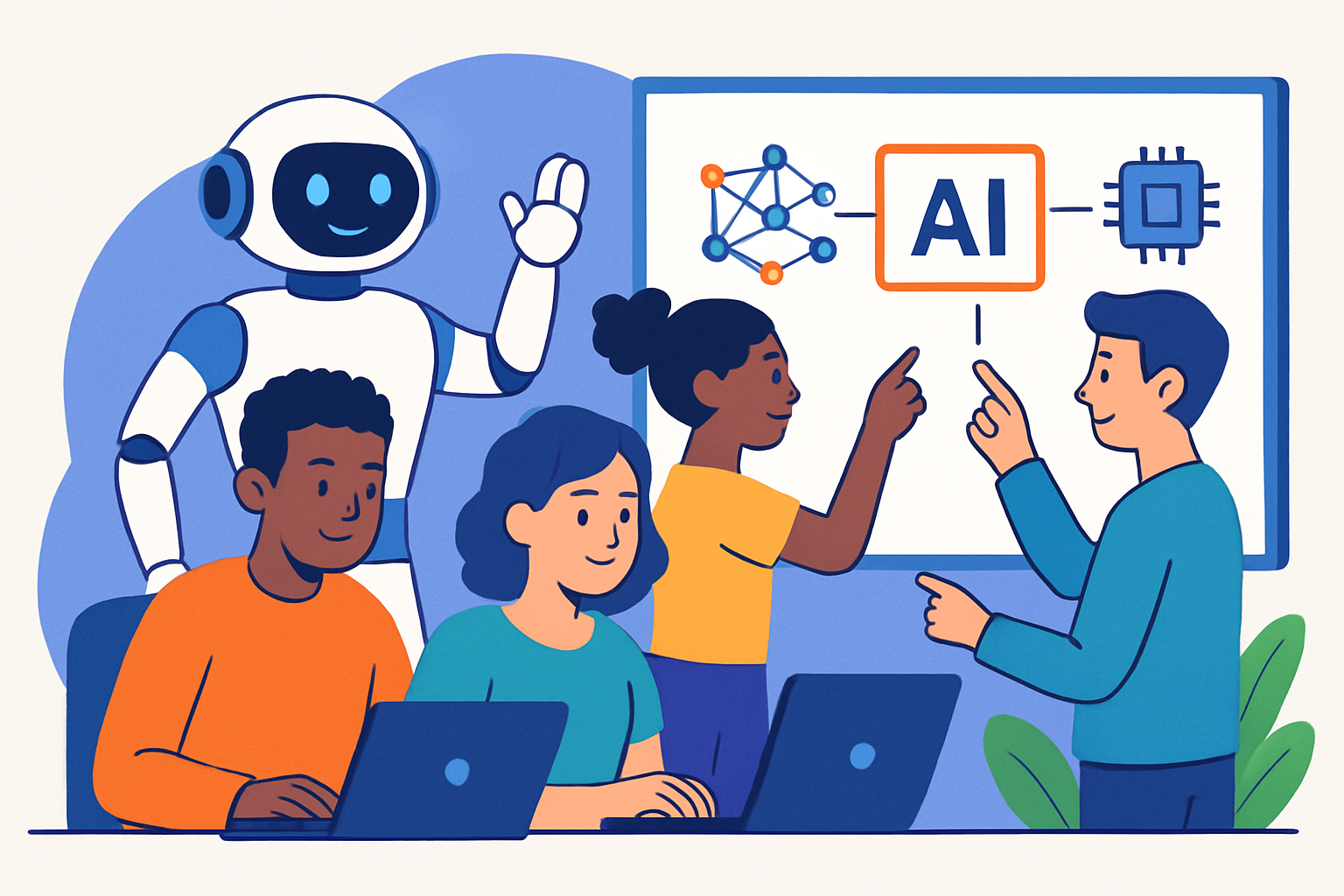AI for Newbies: Top Courses to Kickstart Your Learning Journey
Kickstart your AI journey with our curated list of top AI courses for absolute beginners. Learn key concepts, automate tasks, and unlock new career possibilities. Start learning today!

Embarking on Your AI Adventure: A Beginner's Guide to Learning
Artificial Intelligence (AI) is rapidly transforming our world, and it's no longer a futuristic concept. It's here, it's now, and it's more accessible than ever before. If you're an absolute beginner, the vast landscape of AI can seem daunting. But fear not! This guide is designed to help you navigate the world of AI education and find the perfect courses to start your learning journey.
Why Learn AI?
AI skills are becoming increasingly valuable across various industries. From automating mundane tasks to developing innovative solutions, AI offers incredible opportunities. Learning AI can:
- Boost your career prospects: AI professionals are in high demand.
- Enhance problem-solving skills: AI encourages logical and analytical thinking.
- Unlock new possibilities: AI empowers you to create and innovate.
Choosing the Right Course for You
The key to success in learning AI is to start with the fundamentals. Look for courses that cover these essential topics:
- Introduction to AI concepts: What is AI, machine learning, and deep learning?
- Basic programming skills: Python is the most popular language for AI.
- Mathematical foundations: Linear algebra, calculus, and statistics are helpful but not always required at the beginner level.
- Machine learning algorithms: Learn about supervised, unsupervised, and reinforcement learning.
Top Recommended AI Courses for Beginners
- Coursera's AI For Everyone (by Andrew Ng): This non-technical course provides a broad overview of AI and its applications.
- fast.ai's Practical Deep Learning for Coders: A hands-on course that teaches you how to build deep learning models with minimal code.
- Udacity's Intro to Machine Learning: Covers fundamental machine learning algorithms and their applications.
- edX's AI101: Introduction to Artificial Intelligence: A comprehensive introduction to AI concepts and techniques.
- Google's AI Education: Offers a variety of resources for learning about AI, including tutorials and documentation.
Beyond Courses: Practical Application
Learning isn't just about taking courses; it's about applying what you learn. Consider these practical steps:
- Work on small projects: Build a simple image classifier or a text summarizer.
- Participate in online communities: Engage with other learners and experts.
- Contribute to open-source projects: Gain real-world experience by contributing to AI projects on platforms like GitHub.
Automating Your AI Workflow
As you delve deeper into AI, you'll discover the power of automation. Imagine automatically training a model, deploying it, and monitoring its performance – all without writing a single line of code. That's where automation platforms like Make.com come in.
Streamlining AI Tasks with Make.com
Make.com is a no-code platform that allows you to connect different apps and services, automating complex workflows. Here's how you can use it for AI:
- Automate data collection: Connect Make.com to your data sources (e.g., databases, spreadsheets) and automatically import data for training your models.
- Orchestrate model training: Trigger model training pipelines based on specific events (e.g., new data arriving).
- Deploy models automatically: Automatically deploy your trained models to a cloud platform.
- Monitor model performance: Set up alerts to notify you when your model's performance drops below a certain threshold.
With Make.com, you can focus on the core aspects of AI – building and improving your models – while automating the repetitive tasks.
Tips for Success
- Start small: Don't try to learn everything at once. Focus on one area of AI at a time.
- Be patient: Learning AI takes time and effort. Don't get discouraged if you don't understand something immediately.
- Practice consistently: The more you practice, the better you'll become.
- Stay curious: AI is a rapidly evolving field. Keep learning and exploring new possibilities.
The world of AI is waiting to be explored. With the right resources and a little bit of dedication, you can become a proficient AI practitioner. Start your learning journey today!
Frequently Asked Questions
What is the best programming language to learn for AI as a beginner?
Python is widely considered the best programming language for beginners in AI due to its simple syntax, extensive libraries (like NumPy, Pandas, and Scikit-learn), and large community support.
How can a beginner use automation platforms like Make.com for AI?
Beginners can use Make.com to automate tasks such as data collection, model training, and deployment, making the AI workflow more efficient without requiring extensive coding.
Is machine learning difficult to learn for someone new to AI?
While machine learning can seem complex, many beginner-friendly courses break down the concepts into manageable pieces. Starting with the fundamentals and focusing on practical applications can make it accessible.
Are there any free AI courses available for absolute beginners?
Yes, there are several free AI courses for beginners. Coursera's "AI For Everyone" and introductory courses on platforms like edX and Udacity provide valuable foundational knowledge without any cost.
Affiliate Disclosure: Some of the links on this site are affiliate links. I earn a small commission if you make a purchase through them—at no extra cost to you. Thank you for your support!